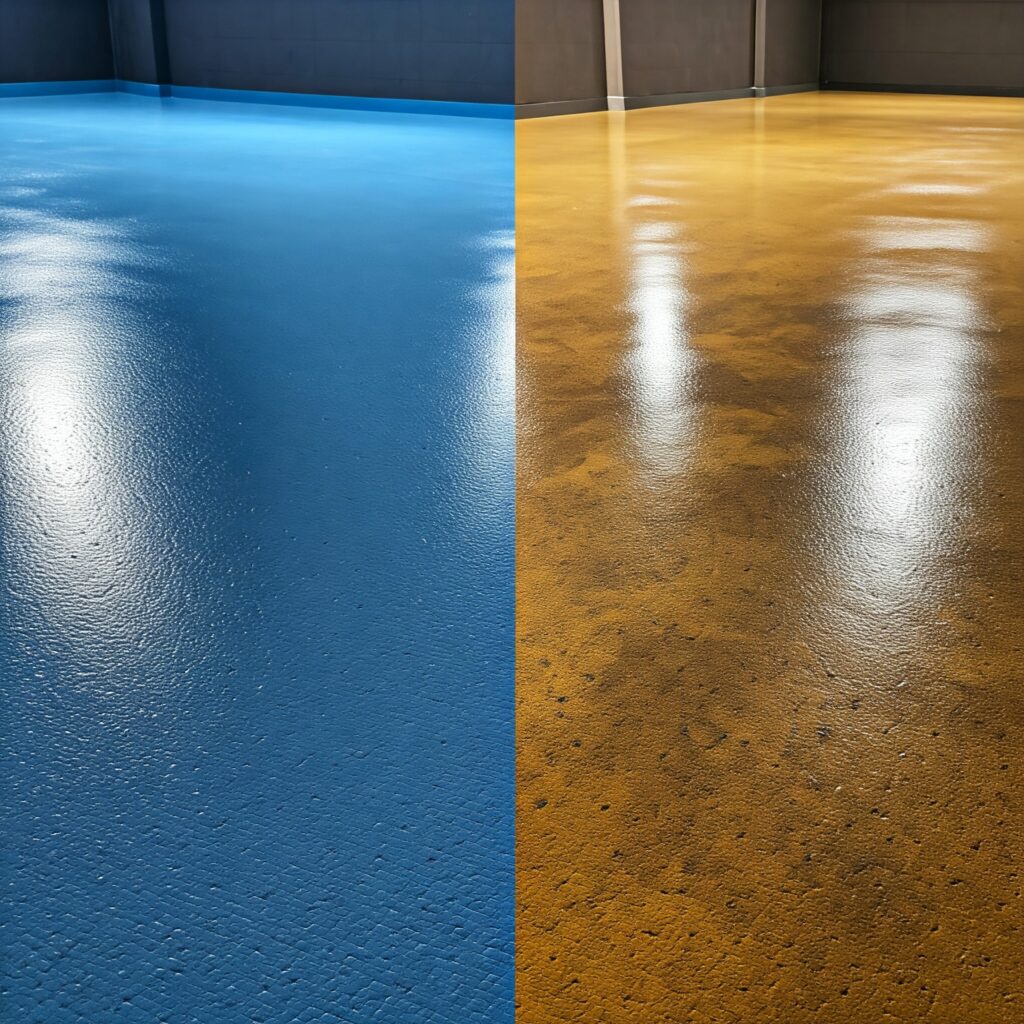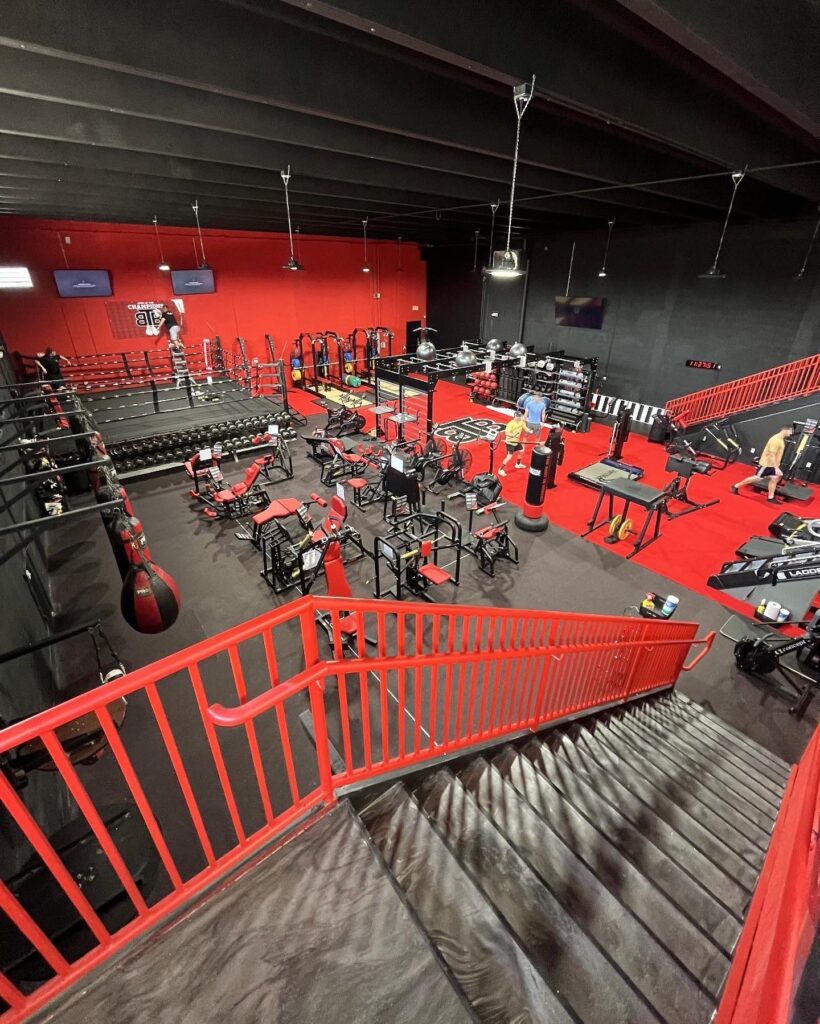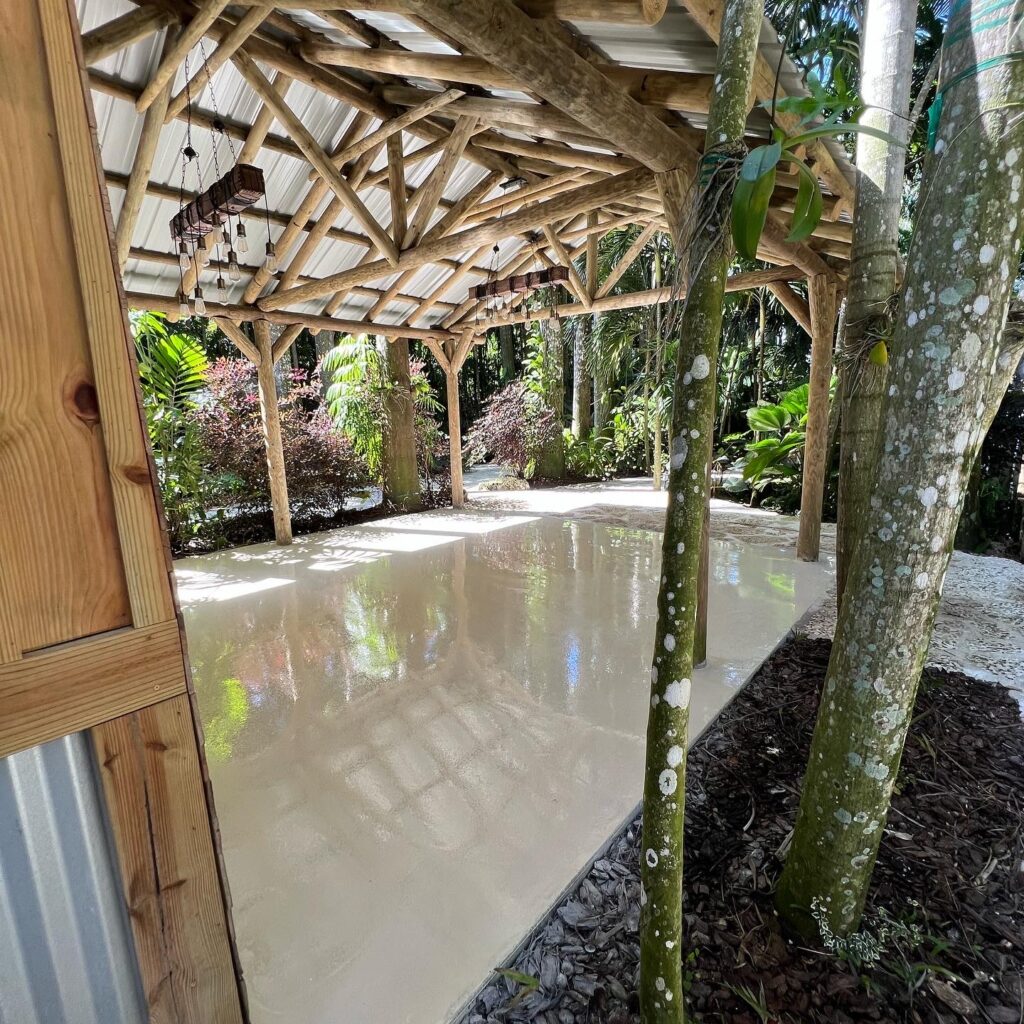Comparing Durability and Performance of Epoxy Flooring and Concrete Paint
When it comes to finishing concrete surfaces, two popular options often come to mind: epoxy flooring and concrete paint. While both are designed to enhance and protect concrete surfaces, their durability, performance, and application vary significantly. Whether you’re upgrading a residential garage, industrial warehouse, or commercial space, choosing the right option can make a big difference in both appearance and longevity.
Epoxy flooring is renowned for its durability, resistance, and sleek aesthetic. Concrete paint, on the other hand, is often seen as a simpler and more affordable solution. But which one truly stands the test of time? In this guide, we’ll compare the features, limitations, and best applications of epoxy flooring and concrete paint, helping you make an informed decision.
What is Concrete Paint?
Concrete paint is a surface coating applied to concrete floors to improve their appearance and provide basic protection. It is typically water-based or acrylic-based, with some options containing additional additives for better adhesion and durability.
Features and Limitations
Features of Concrete Paint:
- Ease of Application: Concrete paint is simple to apply, often requiring only basic tools like a roller or brush. This makes it a popular choice for DIY projects.
- Variety of Colors: Concrete paint comes in a wide range of colors and finishes, allowing homeowners to customize the look of their floors.
- Affordable: Compared to epoxy flooring, concrete paint is relatively inexpensive, making it an appealing option for budget-conscious projects.
Limitations of Concrete Paint:
- Short Lifespan: Concrete paint is not designed for heavy use. Over time, it is prone to peeling, chipping, and fading, especially in high-traffic areas.
- Limited Durability: While it provides some level of protection, concrete paint lacks the resilience needed to withstand heavy loads, chemical spills, or abrasions.
- High Maintenance: Concrete paint requires frequent touch-ups and reapplications to maintain its appearance, adding to its long-term costs.
Concrete paint is best suited for light-duty applications where aesthetics are prioritized over durability. For heavy-duty or high-traffic environments, its limitations become more apparent.
Why Epoxy Flooring Outperforms Concrete Paint
Epoxy flooring is a high-performance surface coating made by combining resin and hardeners to create a durable, seamless finish. Unlike concrete paint, epoxy forms a chemical bond with the concrete substrate, making it much stronger and longer-lasting.
Superior Durability and Longevity
Epoxy flooring is designed to withstand the toughest conditions. Its chemical composition creates a hard, resilient surface that can handle heavy loads, constant foot traffic, and even the impact of machinery.
Key Advantages of Epoxy Durability:
- Abrasion Resistance: Unlike concrete paint, which can chip or scratch easily, epoxy flooring resists abrasions caused by daily wear and tear.
- Load-Bearing Capacity: Epoxy flooring can support the weight of vehicles, heavy equipment, and shelving without cracking or peeling. This makes it ideal for garages, warehouses, and industrial facilities.
- Extended Lifespan: With proper installation and maintenance, epoxy flooring can last for decades, far outliving the lifespan of concrete paint.
Concrete paint, by contrast, starts to show signs of wear within months or years, depending on the level of use. For spaces that demand long-term performance, epoxy flooring is the clear winner.
Resistance to Stains and Chemicals
Epoxy flooring offers superior resistance to stains, spills, and chemicals, making it a practical choice for environments where cleanliness and hygiene are critical.
Benefits of Epoxy’s Resistance:
- Chemical Spills: Epoxy flooring is impervious to a wide range of chemicals, including oils, solvents, and cleaning agents. This makes it ideal for automotive garages, laboratories, and industrial facilities.
- Stain Prevention: Unlike concrete paint, which absorbs liquids and stains over time, epoxy flooring creates a non-porous surface that repels spills. Cleanup is quick and easy, maintaining the floor’s pristine appearance.
- Moisture Resistance: Epoxy flooring prevents moisture from seeping into the concrete, reducing the risk of cracks, mold, and mildew. Concrete paint, on the other hand, may peel or bubble when exposed to moisture.
These features make epoxy flooring not only more durable but also easier to maintain, reducing the need for frequent repairs or touch-ups.
Best Applications for Each Option
While epoxy flooring outperforms concrete paint in durability and resistance, each option has its ideal applications depending on the specific needs of the space.
When to Use Epoxy vs. Paint
Epoxy Flooring:
Epoxy flooring is the go-to choice for heavy-duty applications that require long-lasting performance, resilience, and aesthetics. It is best suited for:
- Garages: Epoxy can handle the weight of vehicles, resist oil spills, and provide a polished, professional look.
- Warehouses: Its durability makes it ideal for industrial settings with forklifts, pallets, and heavy machinery.
- Commercial Spaces: Restaurants, retail stores, and showrooms benefit from epoxy’s seamless, easy-to-clean surface.
- Healthcare Facilities: The non-porous, hygienic surface of epoxy flooring is perfect for hospitals and laboratories.
Concrete Paint:
Concrete paint is better suited for light-duty applications where affordability and appearance are more important than durability. It works well for:
- Basements: In low-traffic residential basements, concrete paint can provide a clean, finished look.
- Patios: For outdoor patios with minimal wear and tear, concrete paint offers a simple aesthetic upgrade.
- Temporary Spaces: If you’re working on a short-term project or a space that doesn’t require long-lasting durability, concrete paint can be a cost-effective solution.
Additional Considerations
When deciding between epoxy flooring and concrete paint, there are several factors to keep in mind:
- Budget: While concrete paint is more affordable upfront, its shorter lifespan and higher maintenance costs may make epoxy flooring the more economical choice in the long run.
- Aesthetics: Both options offer a range of colors and finishes, but epoxy flooring provides more advanced customization, such as metallic effects, decorative flakes, and high-gloss finishes.
- Environmental Factors: Epoxy flooring is highly resistant to moisture and temperature fluctuations, making it a better option for areas exposed to the elements. Concrete paint may peel or degrade in extreme conditions.
- Installation: Concrete paint is easier to apply and suitable for DIY projects, while epoxy flooring requires professional installation to achieve optimal results.
When comparing epoxy flooring and concrete paint, it’s clear that epoxy outperforms in terms of durability, resistance, and longevity. While concrete paint may be a budget-friendly option for light-duty applications, its limitations make it less suitable for spaces with heavy traffic or demanding conditions.
Epoxy flooring, with its superior strength and resistance to wear and tear, offers better long-term value. Its ability to withstand heavy use, repel stains, and provide a sleek, modern appearance makes it the preferred choice for both residential and commercial settings.
For those seeking a flooring solution that stands the test of time, epoxy flooring is the ultimate investment.
Upgrade with Art Epoxy Designs for Lasting Results
Ready to transform your space with durable, high-performance epoxy flooring? Contact Art Epoxy Designs today for customized solutions that deliver lasting results. Let us help you achieve a floor that’s as functional as it is beautiful!



